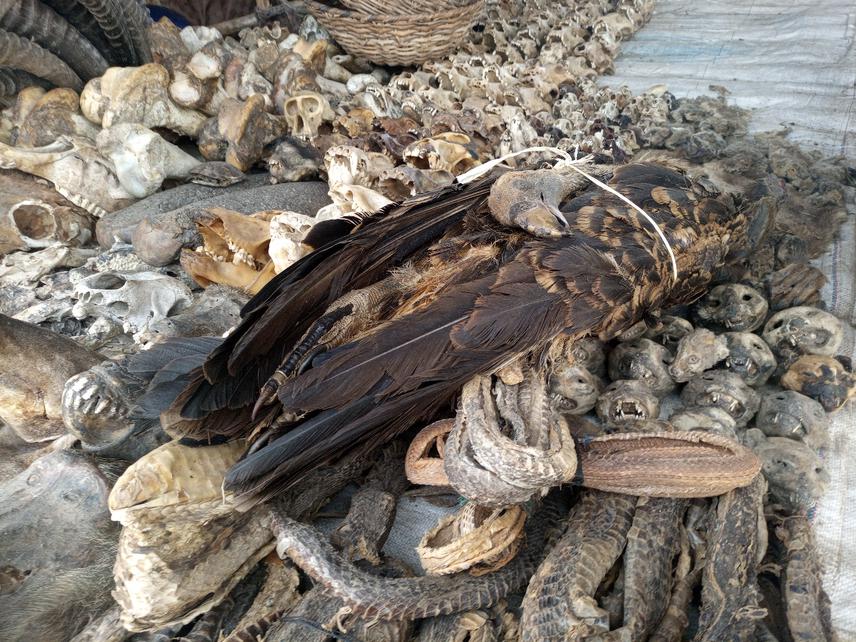Article featuring the project.
Geographic distribution and supply chain of vultures in Benin, West Africa
Assessing the Conservation Status of Vultures’ Species in “Trois rivières” Forest Reserve in Benin
The lack of quantitative data on the illegally traded animals, insight on the trade network, and the cultural importance of the traditional medicine markets make hard the regulation of this harmful activity to the wildlife conservation. Quantitative data on the supply chain and the factors underpinning illegal trade will help to fill the knowledge gaps on vultures’ trade chain.

A vulture specimen on a stall in the biggest traditional medicine market of Dantokpa, Benin
This project aims to identify the habitats source of specimens recorded in the markets, transportation method and trapping methods. By doing this, we will have the potential list of habitats source (National parks, classified forests, or community forests), regions, and certainly the geographic scope of the markets (local or international). Through investigations (interview), it will be identified the stakeholders who are actively involved in the vulture trade, the diversity of vulture species found in the source’s habitats, the most coveted species, and the most sought-after body parts. The data collected will provide an in-depth understanding of the vulture supply chain to outline effective conservation strategies. This project aims also to investigate the financial flow of vulture trade and an approximation of the quantity harvested seasonally and yearly in Benin. This project is an invaluable occasion to understand endogenous drivers of the unsustainable use of vulture in Benin. Finally, the project will develop a policy brief for the wildlife conservation administration to inform on the importance of conserving vultures in their habitat and how to address the challenge of vulture supply chain.
To achieve our objectives, semi-structured interviews will be carried out in the biggest traditional medicine markets across the country (Azove, Abomey, Bohicon, Abomey-calavi, Dantokpa, Dassa, Parakou). In each of these markets, at least 15 vendors randomly selected excepted Parakou and Dassa (5 vendors) will be interviewed using a pre-established questionnaire. The potential source habitats recorded through the survey in Traditional medicine markets and those mentioned in the literature will used to conduct a second survey with local people surrounding the targeted ecosystems. Individual interviews will be conducted with local people, hunters in particular in all the villages surrounding each potential source habitats. The findings of the study will be used to promote the conservation of vultures in Benin via poster-based awareness campaigns.
Article featuring the project.
Geographic distribution and supply chain of vultures in Benin, West Africa